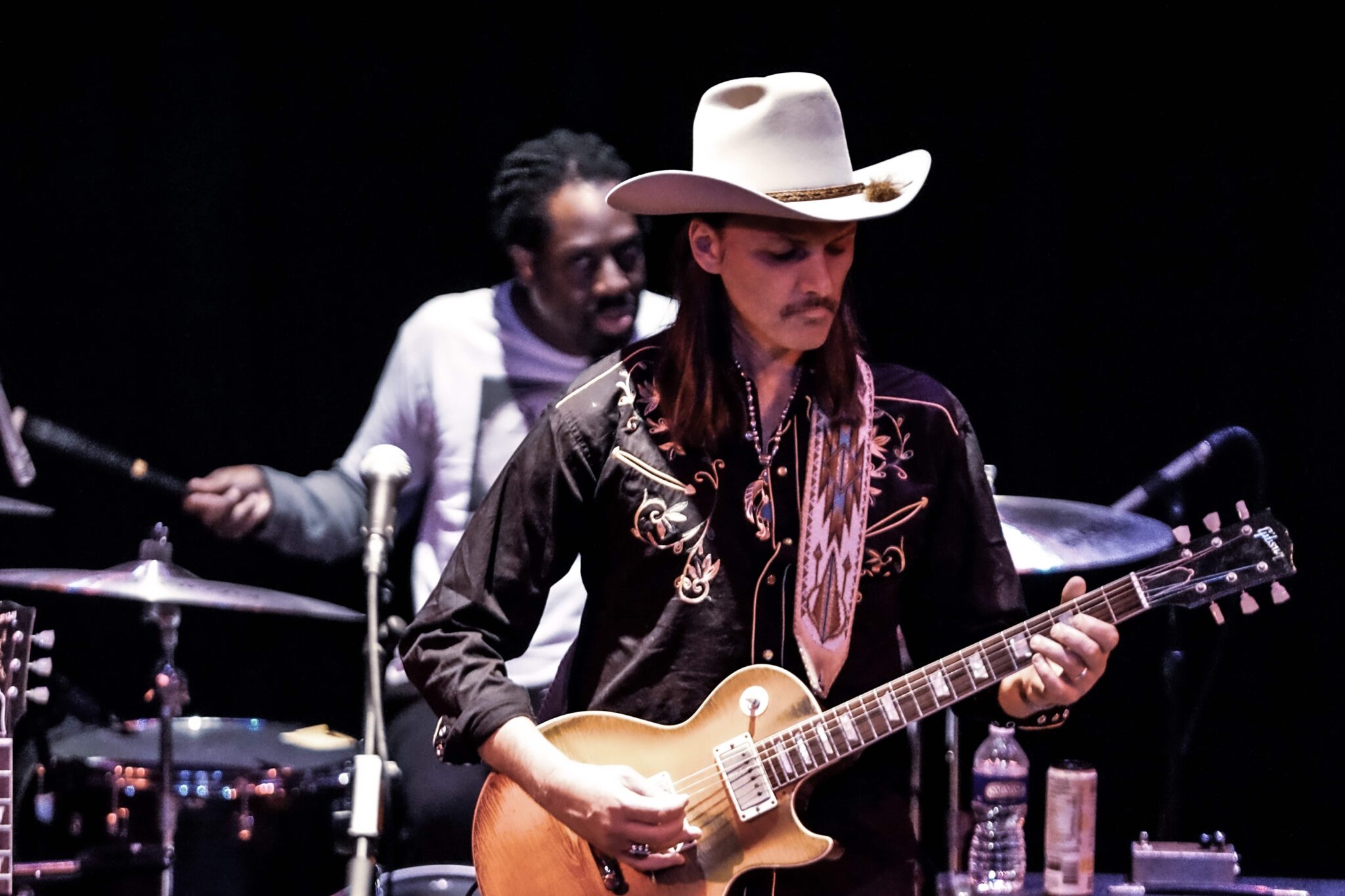There are concerts that entertain, and then there are nights like this—where the music feels like a thread, stitching together decades of soul and sound. Duane Betts and his band, Palmetto Motel, didn’t just take the stage on Wednesday, April 9 at The Egg in Albany; they inhabited it with the confidence of an artist who knows exactly where he comes from and more importantly, where he’s headed.

Before Duane and his band stepped into the spotlight, the evening was set in motion by a heartfelt and soulful performance from the Chris Berardo duo. With Chris on vocals and Billy Kelly providing fiery fretwork, the two summoned a deep well of Americana spirit. Berardo brought a sincerity that immediately connected with the audience. His songs—steeped in storytelling and grit—felt like pages torn from a well-traveled journal, full of heartache, hope, and highway dust.

It was a warm invitation into the night’s journey, delivered by an artist who knows how to hold a room with nothing more than honesty and a well-turned phrase.

With the crowd warmly settled in, it was time for the main event. Duane Betts, carrying both the weight and wonder of a storied musical lineage, stepped into the spotlight with Palmetto Motel at his side. The legacy looms large, of course. Being the son of Dickey Betts—one of the architects of Southern rock and a cornerstone of the Allman Brothers Band—carries expectations heavy enough to crush a lesser musician. But Duane doesn’t wear that legacy like a burden. He moves through it like someone born into the language, who then spent years refining his own dialect. And on this night, his voice—through his guitar, his songwriting, and his presence—rang clear and true.
From the opening chords, there was a familiar warmth in the tone—the kind that evokes long drives, smoky bars, and summer nights steeped in soul. But there was also something fresh, something sharp-edged and unfiltered. This wasn’t a rehash. It was a reinvention—a reminder that heritage isn’t static. It lives, breathes, and transforms in the hands of those who carry it forward.

Duane’s guitar work was a masterclass in feel over flash. Every note was played with intention—never showy or performative. He doesn’t crowd the space with unnecessary flourishes; instead, he speaks through phrasing, dynamics, and emotion—channeling a deep musical intuition that feels both inherited and hard-earned. You hear echoes of the past, yes, but they’re shaped by his own journey and grounded firmly in the present.

The band around him—tight, road-tested and locked in—was every bit up to the task. Johnny Stachela’s guitar work provided a brilliant foil, offering a balance of grit and shimmer that complemented Duane’s beautifully. Their musical dialogue was effortless—the kind that only comes from trust and deep mutual respect. Pedro Arevalo’s bass lines were fluid and rich, adding a bluesy heartbeat to the songs, while Vincent Fossett Jr.’s drumming was the engine—never flashy, always intentional, pushing and pulling the tempo in all the right places. And John Ginty’s keys? The soul of the set. His playing added nuance and color, often stealing subtle moments with swirling organ textures and tasteful runs that filled out the sonic landscape without overwhelming it.

The crowd, packed into the unique architecture of The Egg, was fully present—drawn in by a blend of reverence and curiosity. For some, it was a chance to see a name that carries history. For others, it was about the music in the here and now. But by the midpoint of the show, the reasons didn’t matter. What mattered was the spell that had been cast: a room of strangers brought together by something that felt as personal as it was powerful.

There’s something undeniably moving about watching Duane break into “Blue Sky,” the Allman Brothers classic penned by his father. Songs like “Saints to Sinners” and “Colors Fade” show just how far he’s come as a songwriter—growing into the space carved out by a legend, not as a shadow, but as a light of his own.

“Waiting on a Song”? That’s the glow. It’s not a replication of a sound, and it doesn’t mythologize the past. It’s his “Ramblin’ Man”—a track that expands the tradition into something honest, vibrant, and alive.

Albany got a glimpse of evolution that night. It was a passing of the torch—not from father to son (that happened long ago)—but from era to era. If this show was any indication, that flame is burning bright.



Comments are closed.